Contents
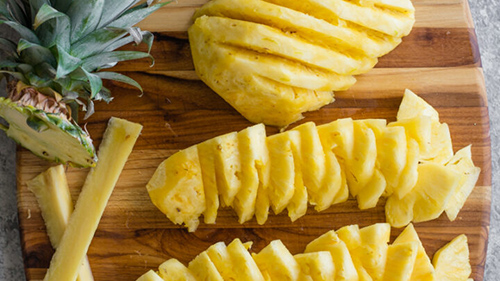
Choosing the best foods for pregnant women is essential because, during pregnancy, the RDA (Recommended Dietary Allowance) of all nutrients increases by approximately 10% in adult women, except for folates, iron, calcium, and vitamins B1 and B6, which raises much more.
- Folates: Folate needs before and after conception, double concerning adult women. Legumes, green leafy vegetables, and nuts are the best sources of folates. Meat, fish, and milk are low in this nutrient. Maternal folate deficiency produces the following negative consequences for the fetus:
- During the weeks before conception and in the first trimester of pregnancy, there is a greater risk of various malformations such as spina bifida and cleft palate.
- In the third trimester, it is associated with a greater risk of premature placenta detachment.
- Throughout the pregnancy, there is an increased risk of premature birth or low birth weight.
- Iron: There is an increased need for this mineral, although there is no need for routine supplements, which can cause side effects such as stomachache and constipation. Iron-rich foods are sufficient to meet the increase.
Best Foods for Pregnant Women
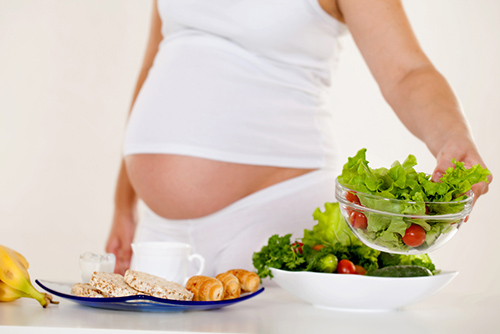
Fruit: Pregnant women should increase consumption of all types of fruits, preferably from organic crops, particularly the following:
- Apples and plums help prevent constipation.
- Pineapple, either whole or as juice, helps avoid the typical heartburn of pregnancy.
- Citrus fruits prevent colds and increase iron absorption.
- Grapes and figs are rich in iron.
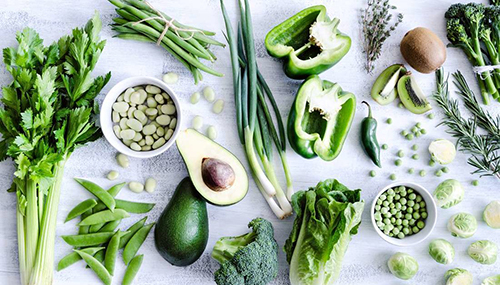
Vegetables are a basic need for any pregnancy meal plan; here are the best vegetables to eat during pregnancy:
- Salads (well-washed) provide fiber, minerals, and vitamins.
- Avocado is rich in iron and vitamin E.
- Spinach is rich in iron and provitamin A.
- Broccoli and cauliflower provide calcium.
- Legumes are the best source of folates and one of the best sources of iron.
Foods to Avoid When Pregnant
Cured meats: Many studies reveal that cured meats are among the top foods to avoid when pregnant. Eating cured meat during pregnancy (ham, sausages, bacon, etc.) increases the risk of tumors of the nervous system, such as brain cancer in the newborn.
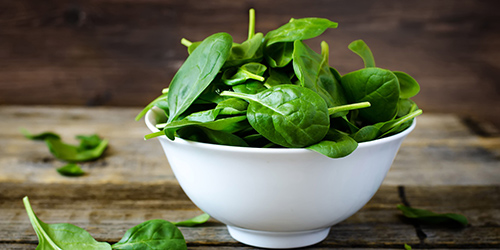
- Experimental evidence
- Investigators conducted at the University of Southern California with experimental animals show that when sodium nitrite and other nitrosamine precursors are administered to gestating females, there is a very high incidence of brain cancer in the young.
- Statistical evidence:
- According to the study cited in the preceding paragraph, the risk to the newborn of brain cancer is more than double if the mother has eaten cured meats during pregnancy than if she has not. High vitamin C and E levels, found primarily in fruits and oil-bearing nuts, partially protect against cured meats’ carcinogenic effect.
- Other studies show that pregnant women who eat one or more hot dogs per week have a 230% greater risk of brain cancer in their children than those who do not.
The carcinogenic effect of the nitrites used in curing and preserving meat is well known. It is somewhat surprising that this effect can manifest in the offspring of pregnant women who eat them.

Pesticide contamination: Organochlorine pesticides such as DDT, PCBs (polychlorinated biphenyl), and dioxins found in contaminated foods pass through the placental barrier from the mother to the fetus. Pesticides are highly toxic to the fetus, producing, among other consequences, alterations in brain development. These are manifested during infancy as behavioral problems and memory loss.
Meats, fish, dairy products, and fruits from sprayed crops are the primary dietary sources of pesticides.
Toxic drugs: The toxic substances found in alcoholic beverages, tobacco, opiates, coca, marijuana or hashish, and even coffee pass from the mother’s bloodstream through the placenta to the fetus.
The harm these substances do to the developing fetus manifests in low birth weight and failure to thrive. But the effect does not end there; it persists for years. Nicotine from tobacco and other drugs also passes to the mother’s milk and negatively affects the child.
The consumption of toxic drugs during pregnancy and nursing is considered a form of child abuse and constitutes a grave threat to children’s health.
Vitamins for Pregnant Women
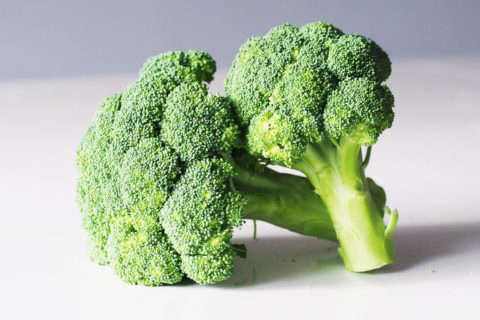
Although consuming the best foods for pregnant women is essential, so is taking the right vitamins and supplements. The administration of vitamin and mineral supplements during pregnancy is a common practice in developed countries; however, it is often unnecessary if following a pregnancy meal plan and eating the right foods on the pregnancy food chart.
The use of supplements is no substitute for following a healthful diet. However, the following supplements may be justified:
- Folates: during the weeks leading up to conception
- Iron: during the second and third trimesters of pregnancy
- Multivitamin and mineral supplements: during the second and third trimesters of pregnancy in these conditions:
- Women whose diet is inadequate
- High-risk pregnancies, such as the ones involving twins and fetuses of women who smoke, drink, or use drugs
RDA (Recommended Dietary Allowance) For Nutrients
| Adult Women | Pregnant Women | Nursing Mothers | |
| Protein (g) | 50 | 60 | 65 |
| Vitamin A (µg RE) | 800 | 800 | 1300 |
| Vitamin D (µg) | 5 | 10 | 10 |
| Vitamin E (mg a-TE) | 8 | 10 | 12 |
| Vitamin K (µg) | 65 | 65 | 65 |
| Vitamin C (mg) | 60 | 70 | 95 |
| Vitamin B1 (mg) | 1.1 | 1.5 | 1.6 |
| Vitamin B2 (mg) | 1.3 | 1,6 | 1.8 |
| Niacin (mg NE) | 15 | 17 | 20 |
| Vitamin B6 (mg) | 1.6 | 2.2 | 2.1 |
| Folates (µg) | 180 | 400 | 280 |
| Vitamin B12 (µg) | 2 | 2.2 | 2.1 |
| Calcium (µg) | 800 | 1200 | 1200 |
| Phosphorus (µg) | 800 | 1200 | 1200 |
| Magnesium (mg) | 280 | 320 | 355 |
| Iron (mg) | 15 | 30 | 15 |
| Zinc (mg) | 12 | 15 | 19 |
| Iodine (µg) | 150 | 175 | 200 |
| Selenium (µg) | 55 | 65 | 75 |
DISCLAIMER: All content on this website is presented solely for educational and informational objectives. You should not rely on the information provided as a replacement for advice, diagnosis, or treatment from a qualified medical expert. If you are pregnant, nursing, or have any preexisting medical concerns, you should talk to your doctor before using any herbal or natural medicines.
REFERENCES
- George D. Pamplona-Roger, M.D. “Encyclopedia of Foods and Their Healing Power.” George D. Pamplona-Roger, M.D. Encyclopedia of Foods and Their Healing Power. Trans. Annette Melgosa. Vol. 2. Chai Wan: Editorial Safeliz, 2005. 384, 385. Print. [best foods for pregnant women]
- Academy of Nutrition and Dietetics: https://www.eatright.org/
- American College of Obstetricians and Gynecologists: https://www.acog.org/
